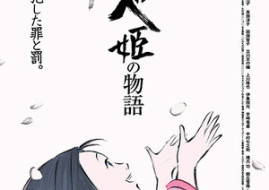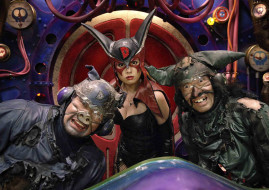Tokyo Drifter (1966)
[dir: Seijun Suzuki; producer: Tetsuro Nakagawa; writer: Yasunori Kawauchi]
Cast: Tetsuya Watari, Chieko Matsubara, Hideaki Nitani, Ryuji Kita
Running Time: 89 Min
Plot: Tetsu has joined his yakuza boss in going straight, but when a rival gang threatens to bring them back into the gang wars, Tetsu must become a drifter to keep the pressure off his old boss.
~~~~
Seijun Suzuki’s next-to-the-last film for Nikkatsu is a genre delight filmed in brilliant color. In the United States people make a big deal out of the fact that the hero once in a while sings his own theme song, taking the story of loyalty and honor among gangsters into the realm of jokey musicals. But the singing sequences were made-to-order, as Suzuki was charged with making pop singer Tetsuya Watari into a movie star. Watari sings the theme song, and Seijun must have just thought it would be more fun if he had Tetsuya sing on-camera as well as on the soundtrack.
Tokyo Drifter has beautiful color, outrageous B-movie action sequences, and a campy sense of humor that makes it very special. But the Nikkatsu brass didn’t see it that way. They didn’t appreciate the parody elements of the production, and they ended up firing Suzuki one picture later.
Criterion’s DVD of this film has a fun interview with Seijun Suzuki on it, in which he delivers great anecdotes about how Tetsuya Watari couldn’t remember lines at all, and other such stuff. And there are his comments on the “green moon” incident, as well. Apparently, an original ending to the film had Watari walk out of the nightclub into a cityscape that was radically colored. Among other such deliberate miscolorations, the moon appeared green. “What’s up with the green moon?” asked the Nikkatsu top brass. They forced Suzuki to re-film the segment. Suzuki responded by filming it all in white, with bright green letters announcing the end of the picture. The scene attains similar ends, showing that the protagonist sees things in a completely different way after he leaves the carnage of the film, but what would have been a wonderful, trippy finish ended up severely curtailed by the inflexible Nikkatsu corporate bosses.























